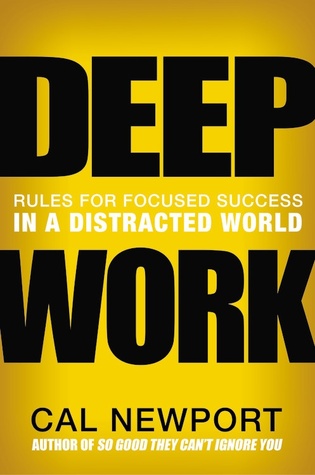Highlights from this book
-
Deep Work: Professional activities performed in a state of distraction-free concentration that push your cognitive capabilities to their limit. These efforts create new value, improve your skill, and are hard to replicate.
-
Shallow Work: Noncognitively demanding, logistical-style tasks, often performed while distracted. These efforts tend to not create much new value in the world and are easy to replicate.
-
To remain valuable in our economy, therefore, you must master the art of quickly learning complicated things.
-
Two Core Abilities for Thriving in the New Economy 1. The ability to quickly master hard things. 2. The ability to produce at an elite level, in terms of both quality and speed.
-
When you switch from some Task A to another Task B, your attention doesn’t immediately follow—a residue of your attention remains stuck thinking about the original task.
-
The Principle of Least Resistance: In a business setting, without clear feedback on the impact of various behaviors to the bottom line, we will tend toward behaviors that are easiest in the moment.
-
Busyness as Proxy for Productivity: In the absence of clear indicators of what it means to be productive and valuable in their jobs, many knowledge workers turn back toward an industrial indicator of productivity: doing lots of stuff in a visible manner.
-
Our brains instead construct our worldview based on what we pay attention
-
Human beings, it seems, are at their best when immersed deeply in something challenging.
-
The meaning uncovered by such efforts is due to the skill and appreciation inherent in craftsmanship—not the outcomes of their work. Put another way, a wooden wheel is not noble, but its shaping can be. You don’t need a rarified job; you need instead a rarified approach to your work.
-
You have a finite amount of willpower that becomes depleted as you use it. Your will, in other words, is not a manifestation of your character that you can deploy without limit; it’s instead like a muscle that tires.
-
The key to developing a deep work habit is to move beyond good intentions and add routines and rituals to your working life designed to minimize the amount of your limited willpower necessary to transition into and maintain a state of unbroken concentration.
-
Idleness is not just a vacation, an indulgence or a vice; it is as indispensable to the brain as vitamin D is to the body, and deprived of it we suffer a mental affliction as disfiguring as rickets… it is, paradoxically, necessary to getting any work done.
-
Trying to squeeze a little more work out of your evenings might reduce your effectiveness the next day enough that you end up getting less done than if you had instead respected a shutdown.
-
Enforce at least a five-minute gap between the current moment and the next time you can go online. This gap is minor, so it won’t excessively impede your progress, but from a behavioralist perspective, it’s substantial because it separates the sensation of wanting to go online from the reward of actually doing so.
